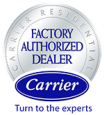Apart from heating and cooling, the aspect of indoor air quality (IAQ) is also important in commercial settings, as it can affect the health and productivity of their occupants. Poor IAQ exposes individuals to health problems, particularly asthma, headaches, colds and other respiratory issues. In this blog post, Albert Air Inc., a leading HVAC repair and maintenance contractor, explains the importance of proper IAQ in commercial buildings, the factors influencing it, and effective strategies to promote a healthy indoor environment.

Factors Affecting IAQ in Commercial Buildings
Offices, retail stores, schools, healthcare facilities, and other commercial establishments face unique challenges when it comes to indoor air quality. Generally, various factors contribute to overall air quality inside these premises — building design, occupancy levels, ventilation systems, and the types of indoor pollutants. Understanding these factors is crucial in addressing issues that come with poor IAQ, fostering a healthy indoor environment.
Strategies to Manage IAQ in Commercial Buildings
Local heating and air conditioning service contractors recognize the need to implement certain strategies to help ensure proper indoor air quality within commercial settings. These include the following:
- Adequate Ventilation. Buildings should have enough ventilation to get rid of indoor pollutants while also obtaining a constant supply of fresh outdoor air. Ventilation systems, therefore, must be designed to meet the building needs, as well as maintained to ensure consistent air exchange and minimize contaminant buildup. Filtration systems help improve IAQ by capturing allergens and other airborne particles.
- IAQ Control. Another integral component of IAQ management involves controlling indoor pollutants. Common sources of indoor pollutants include VOCs, or volatile organic compounds, which are found in building materials and furnishings, as well as mold, bacteria and other biological contaminants. Maintaining cleanliness throughout the premises and using low-VOC building materials can help mitigate these pollutants.
- IAQ Monitoring. Regular assessments and measurements can help identify potential IAQ issues and determine the effectiveness of mitigation measures. Monitoring systems provide real-time data, particularly in parameters such as temperature, humidity, CO2 levels, and pollutant levels.
Get in Touch With Us!
You don’t have to look far and wide for an “air conditioning repair near me“. At Albert Air Inc., we don’t just provide heating and AC service; we also offer indoor air quality solutions in both residential and commercial settings. We have been in business for more than 35 years so you can count on us to have the expertise necessary to not just provide you with the right indoor air quality products but ensuring as well that all installation work is done expertly.
Get started today with a consultation — call (714) 526-6368, or fill out our contact form.





